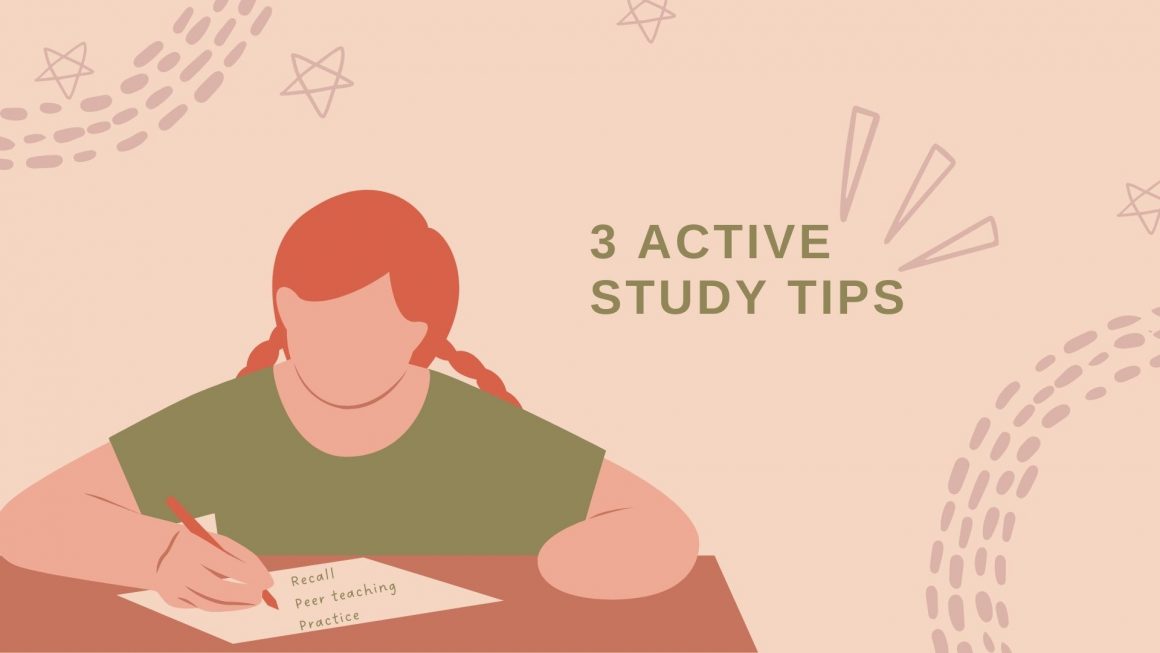
Three active study tips to help you feel prepared for final exams
By Amalia DeSantis, December 12 2021—
Final exam season is an extremely overwhelming and stressful time of year, especially when you have a few exams in a week or two. For some, this semester may be the first time you have written an in-person exam in over a year and a half. Here are a few study tips that emulate the “work smarter, not harder” mindset because students are busy and efficiency is key. Best of luck with your exams!
The importance of the active recall method:
What is active studying? Opposed to passive methods of studying such as re-reading notes or highlighting readings and textbooks, active study methods challenge individuals to engage with course materials in a way that promotes long-term retention. One of these active methods is known as active recall or retrieval.
To carry out this method, I recommend skimming your notes and texts simply as a refresher and then sitting down — with paper and pen — and writing out as much as you possibly can without referring to your course materials and resources. During the warmup stage, it can also be helpful to create general questions and prompts for yourself to answer once you sit down and write.
Once you have written down as much as you can recall from memory, it is important to compare your course materials with what you were able to produce and assess the gaps in your knowledge. This, in turn, facilitates more efficient studying, as you can focus on what you need to spend more time revising.
Active recall is a challenging cognitive process but it pushes you to remember, connect and recall concepts more effectively than re-reading the same text over again multiple times. Compared to other methods of studying such as creating concept maps with course materials present, active retrieval, as it is described in a study by Jeffrey Karpicke and Janell Blunt was shown to have
“Produced the best learning, better than elaborative studying with concept mapping, which itself was not significantly better than spending additional time reading. Collapsed across question type (verbatim and inference), the advantage of retrieval practise over elaborative studying with concept mapping represented about a 50% improvement in long-term retention scores.”
From “Comment on ‘Retrieval Practice Produces More Learning than Elaborative Studying with Concept Mapping.'”
Peer teaching:
Peer teaching can be a bit awkward to do in public or around other people but if you have someone in your life who is willing to learn the latest topics in your history, sociology or finance course, it will be beneficial to you.
Peer teaching consists of students teaching other students their course content and has been shown to engage students in the learning process. Neal A. Whitman, the author of “Peer Teaching: To Teach is to Learn Twice” praises peer teaching because the process of “reviewing and organizing the material that is to be taught” gives students themselves a better understanding of the course content.
You should feel ready to articulate both the guiding concepts and details as intelligible to an outsider. Objects like stuffed animals or your pets also make great pupils!
Practice makes perfect:
Practicing from textbooks, prior exams and the questions that your professors pose to you are great ways to study. It is important to take advantage of the resources made available to you. Practicing also prepares you for the types of questions you may come across during an exam. Under the umbrella of practice tests and problems, falls flashcards. Flashcards are a quick way to pose a question to yourself and answer from memory — don’t cheat!
The content you may cover in your engineering class may widely differ from the content in your communications class, so modify these methods as they best accommodate your areas of study and learning strategies. Hopefully, these time-efficient methods above should leave a day before your exam to let all the information soak in and give you time to relax — or get studying for your next exam.
